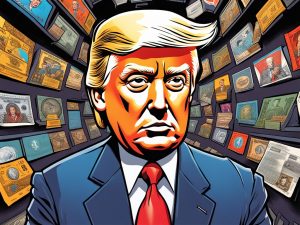Argentina’s Shift Towards Cryptocurrency: A Potential Game-Changer? 🚀
This year, Argentina is witnessing a significant push towards cryptocurrency adoption, particularly Bitcoin. A recent proposal by lawmaker Martín Yeza has sparked discussions about enabling the Central Bank of the Argentine Republic (BCRA) to engage in crypto operations, including buying, holding, and mining Bitcoin. This legislative initiative reflects an evolving perspective on cryptocurrencies within the country, potentially marking a transformative moment for both the financial sector and national monetary policies.
Understanding the Proposed Legislative Change 📜
Currently, Argentine law restricts the BCRA from purchasing or retaining cryptocurrencies and other financial assets that lack regulation. Yeza’s proposed bill seeks to amend the existing BCRA charter, granting the bank the autonomy to determine the proportion of its reserves it wishes to allocate to Bitcoin. This initiative could open doors for the bank to invest in digital currencies and undertake new projects related to cryptocurrency.
- Key Highlights of Yeza’s Proposal:
- Modification of BCRA’s charter allows crypto acquisition
- Bank decides the percentage of reserves in Bitcoin
- Potential commissioning of blockchain-related projects
The Inspiration Behind the Initiative 💡
Yeza’s initiative draws inspiration from Argentine entrepreneur Santiago Siri, a notable figure in the blockchain space. Siri had previously urged the government in 2014 to allocate a small portion of its reserves to Bitcoin investments. If this recommendation had been adopted, the BCRA could have acquired approximately 452,000 BTC for an investment of around $280 million. At today’s market prices, this stake would be valued at approximately $37 billion, indicating the wealth of opportunities that early crypto investments can provide.
“Clearly, this is not a matter of great urgency. But there is an opportunity here.”
Martín Yeza
While recognizing that the proposal’s approval is unlikely before the year concludes, Yeza mentions that gaining the support of President Javier Milei is crucial. Notably, Milei has previously expressed favorable attitudes towards Bitcoin, which might support the bill’s prospects.
The Government’s Attitude Towards Bitcoin 🌐
Following years of economic turmoil and hyperinflation in Argentina, the adoption of cryptocurrencies has steadily risen. The Milei administration indicates a growing interest in Bitcoin, which aligns with broader efforts to stabilize the economy. Recent discussions between the National Securities Commission (NSC) and Salvadoran officials regarding Bitcoin demonstrate Argentina’s active engagement in the global crypto dialogue.
- Recent Developments:
- Milei’s administration shows support for Bitcoin
- Engagement with the NSC on crypto-related matters
- International discussions on Bitcoin adoption strategies
Could Other Nations Follow Suit? 🌍
Argentina’s move towards allowing its central bank to interact with cryptocurrencies could set a precedent for other nations. Recently, discussions have emerged in the United States regarding the creation of a strategic Bitcoin reserve. Senator Cynthia Lummis has proposed selling a small fraction of gold reserves to facilitate the purchase of substantial Bitcoin amounts, showcasing a nascent trend among nations considering cryptocurrency as part of their monetary strategy.
“We are going to build a strategic Bitcoin reserve.”
Senator Cynthia Lummis
The potential for central banks to hold Bitcoin reflects a changing paradigm in monetary policy and financial stability. Countries grappling with economic challenges may view Bitcoin as a valuable asset class that could offer resilience in uncertain times.
Hot Take: The Future of Bitcoin in Latin America and Beyond 🔮
This year has illuminated the path towards a possible new era for cryptocurrencies within government frameworks, particularly in Latin America. Argentina’s lawmaker, through this legislation, is not only addressing domestic financial challenges but also aligning with global trends. This evolving landscape suggests that Bitcoin could become a significant component of policy discussions in various nations, spurred by necessity and the quest for economic innovation.
As countries like Argentina contemplate the integration of digital currencies into their national financial systems, the conversation around cryptocurrency will likely gain momentum—ultimately influencing global economic structures and investor behaviors.





 By
By
 By
By
 By
By

 By
By
 By
By